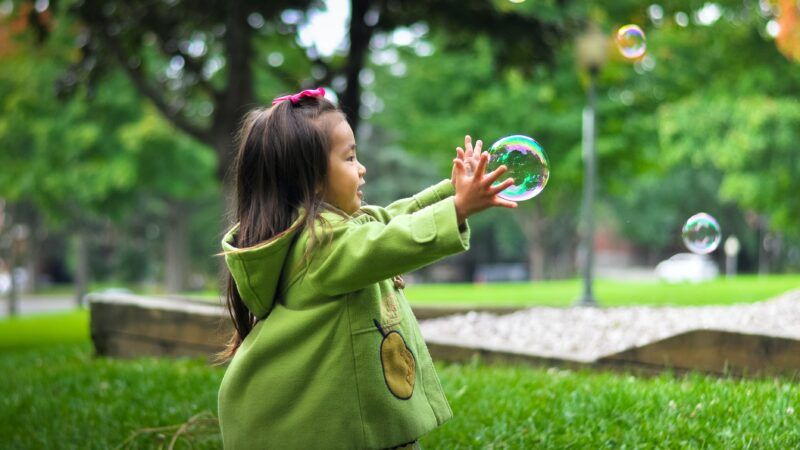Mom, How Come the Kids in These Old Books Are Allowed Outside Without a Parent or Cell Phone?
Paging Encyclopedia Brown: Someone has stolen childhood.

Harriet the Spy. Encyclopedia Brown. Meg and Charles Wallace, Ramona, Beezus, Pippi, and that kid from My Side of the Mountain. They all shared something other than spunk: freedom of movement.
It was a given in midcentury children's literature that the protagonists would venture off on their own. They solved crimes, befriended beavers, and saved parents who had become stuck in other dimensions. But the normal stuff they did—hopping on their bikes, walking into town, playing outside—has become almost as mythic as the ability to fly or cast spells.
I was just reading an essay by a mom who said it actually felt sad and unnerving to read the 1964 book A Pocketful of Cricket to her son, knowing he would not be growing up in an era affording him anything like the freedom she or the boy in the book had enjoyed.
And as sad as that is to contemplate, it is also infuriating. There is no reality-based reason kids today can't be out and about on their own. Our culture seems to think nothing of depriving the people we ostensibly love the most—children—of the chance to be fully alive when they are young. Having adventures. Meeting crickets. Making some memories when something goes totally wrong or totally right.
We say we can't let them have the freedom their parents and grandparents enjoyed because we are trying to keep them safe. But this relentless focus on safety only makes sense if we are talking about Rembrandt paintings, or a Ming vase. Might as well keep those safe in a temperature-controlled room. There is no upside to exposing them to anything other than hushed tones and velvet-gloved hands. Kids are precious, but they're not precious things. They grow when they get a chance to do, to see, to try, to run, and even to fall.
A classic article in The Daily Mail several years back titled "How Children Lost the Right to Roam in Four Generations" interviewed four members of the same family. The great grandad, 88, recalled walking six miles at age eight to play with friends and make forts in the woods. His son, 63, walked a mile or so to do the same thing, same age. The daughter, in her 40s, had walked half a mile to school.
And she does not let her eight-year-old son off the block.
That is not progress. That is the gradual suffocation of childhood. And yet it has become so accepted that those who resist—who want their kids to roam like Pippi, Harriet or Charles Wallace—are outliers. Just this morning I spoke with a mom in Virginia visited twice by the cops for letting her young kids play on the front lawn.
Yesterday it was another mom. She was watching her son and daughter, ages four and five, play in the backyard, but when she went inside to change the baby, the siblings wandered into the woods. When the mom called the cops to ask for help finding them, they obliged, found the kids—and referred the mom to child protective services.
When the mom asked what she had done wrong, the cop replied that letting her kids play outside alone is always considered neglect.
Paging Encyclopedia Brown: Someone has stolen childhood. Do you think we'll ever get it back?


Show Comments (84)